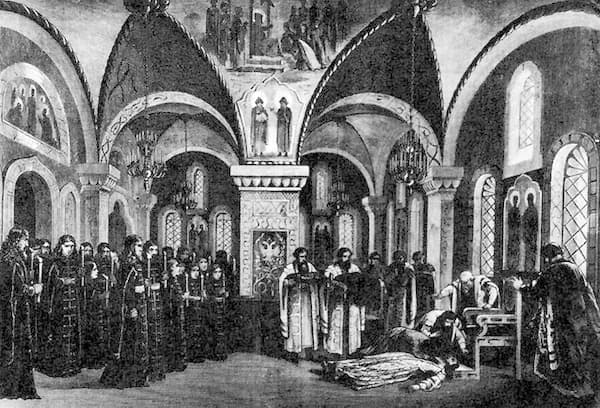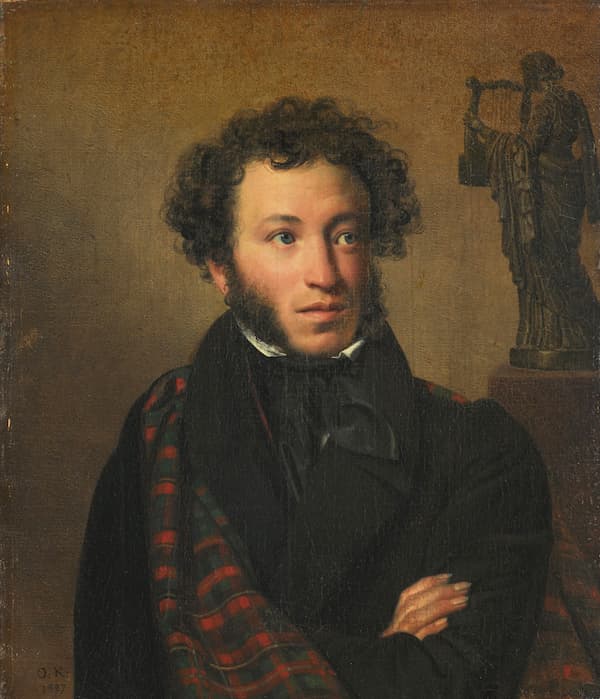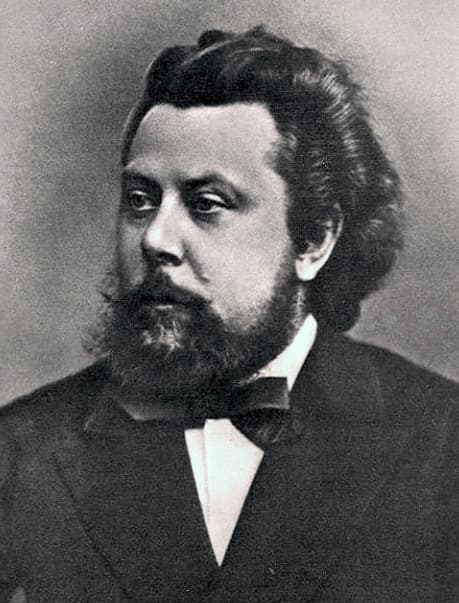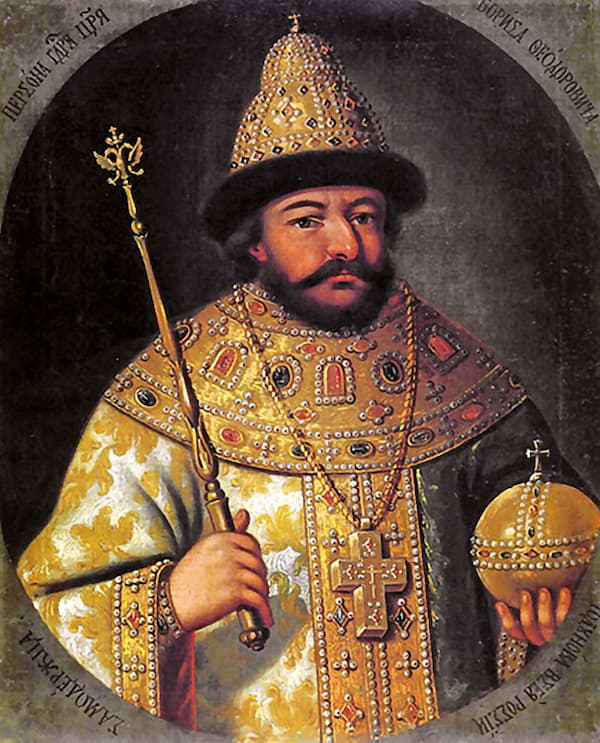Premiered on 27 January 1874 at the Mariinsky Theatre in St Petersburg, according to the Julian calendar, Boris Godunov by Modest Petrovich Mussorgsky is the pre-eminent representative of the historical genre in Russian opera. It was composed at a time when historical drama was the dominant Russian theatrical genre, musical or otherwise. To scholars, “it reflected the widespread conviction that art had a civic obligation, an attitude that flourished in states where open discussion of public policy is not permitted.”
Modest Mussorgsky: Boris Godunov, “Coronation Scene”
Pushkin

The Death of Boris, 1874
The story of Boris Godunov comes from the pen of Alexander Pushkin, a writer exiled for his politically charged poems but an author of the greatest possible influence on Russian music.
The diversity and richness of his creative output were such that a composer of any stylistic and ideological inclinations could find a great source of inspiration.
Pushkin created the modern Russian language and modern Russian literature. During his short but prolific creative life, which ended with a bullet at a duel, he wrote numerous poems, dramas, novels, and fairy tales in verses. Many of them would become a basis for operas, ballets, symphonic pieces and romances.
Modest Mussorgsky: Boris Godunov, “Polish Act”
A Complicated Project

Alexander Pushkin
Mussorgsky wrote his own libretto for his only completed opera and finished the music between October 1868 and 1869. That particular version was rejected by the Imperial Theatres, and the composer produced a revised version between February 1871 and July 1872. The original version consisted of seven scenes grouped into four acts, and the revised version featured nine scenes, six of the original more or less radically altered, plus three newly composed. It was the revised version that first sounded on 27 January 1874.
However, the history of revision did not end in 1874. Beginning in 1896, the opera was re-orchestrated by Rimsky-Korsakov to “correct technical weaknesses,” and the same process was taken on by Dmitri Shostakovich in 1939. As a scholar writes, Boris Godunov has been variously subjected to cuts, re-compositions, re-orchestration, transposition of scenes, or conflation of the original and revised versions.
Modest Mussorgsky: Boris Godunov, “Varlaam’s Drinking Song”
Brief Synopsis

Modest Petrovich Mussorgsky, 1870
The subject of the opera, the Russian ruler Boris Godunov, was the de facto regent of Russia from 1585 to 1598 and then Czar from 1598 to 1605. There had always been mysteries surrounding his rise to the throne, as he was responsible for ordering the assassination of the family of the previous tsar. For a decade, he reigns over Russia but is increasingly haunted by the knowledge of his unjust ascension.
A young monk in a monastery learns of Godunov’s crime and decides to try and take the throne for himself. He claims to be Dmitry, the young heir to the throne who was murdered years ago. As he assembles his armies, Boris is terrified by visions of the child he had murdered. When news of this child, now risen from the grave and claiming his birthright, reaches Boris, he suffers a fatal heart attack, leaving the throne to the imposter.
Modest Mussorgsky: Boris Godunov, “Mad Scene”
The Music
The fame of the opera rests primarily on Mussorgsky’s extraordinary portrayal of the title character. It is, by all accounts, one of the greatest bass/baritone roles ever created, as “it offers tremendous scope to a charismatic singing actor.” The psychological insights into his depiction of the Czar’s character, which Mussorgsky imitated from the spoken word, finds resonance in the lifelike musical depiction of gestures and, in the choral scenes, from the sounds and noises of the crowds.

Boris Godunov
Mussorgsky built his musical and psychological effects by repetition and the accumulation of single impressions, and not from some thematic development reaching a climax. The action develops continuously, and the series of episodes is welded together “by an epic thread and the central figure of the Czar.” The revised version, as argued by a musicologist, “is the work of a fastidious dramatist in sure command of his materials. It possesses an integrity of structure and of style that would increasingly become the rule.”
For more of the best in classical music, sign up for our E-Newsletter
